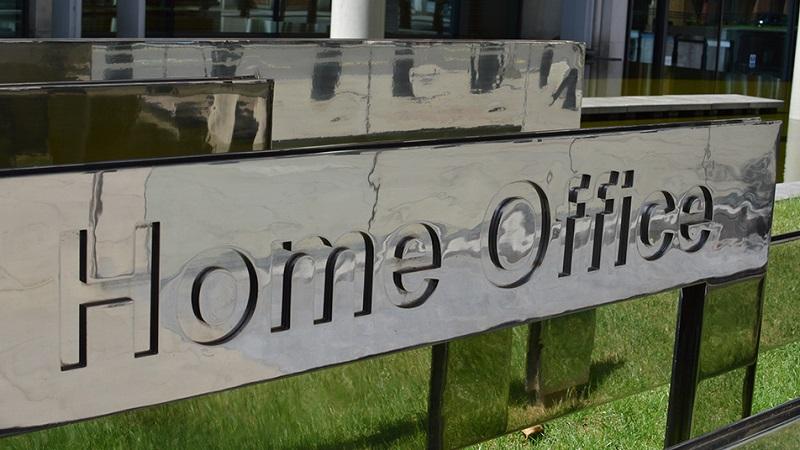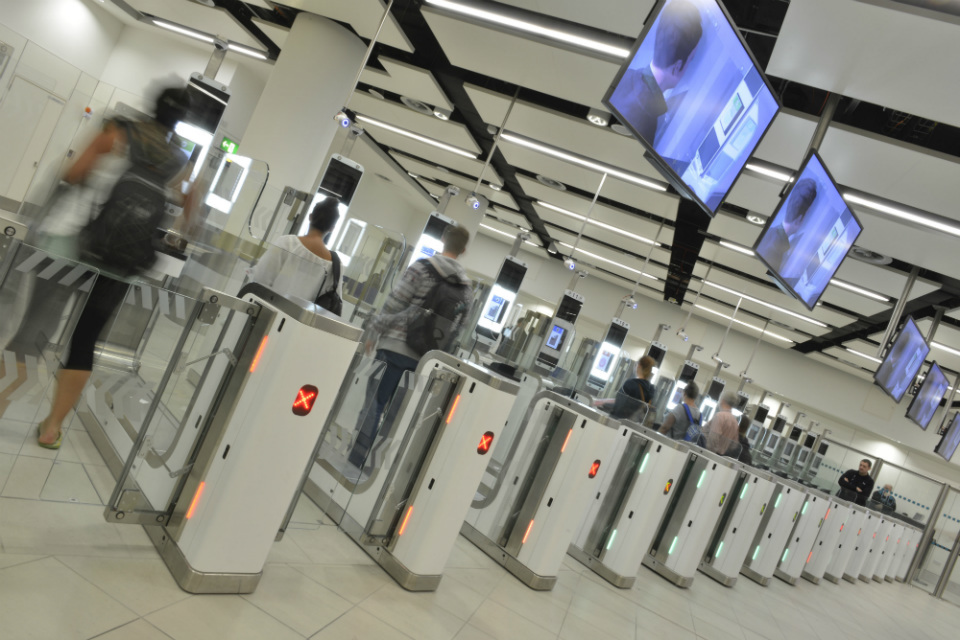Digital transformation often cited by ministers appears to have had little impact
Credit: Crown Copyright/Open Govermment Licence v3.0
The Home Office asylum backlog has hit record levels, with nearly 110,000 asylum seekers left waiting for a decision on their case for more than six months, new figures show.
There are 160,919 people waiting on asylum decisions as of the end of 2022 – quadruple the number awaiting an initial decision at the end of 2019, before the Covid pandemic – according to figures published by the department yesterday.
As this number has increased increasingly rapidly in recent years, ministers have repeatedly claimed that the Home Office could help tackle the problem by increased use of digital processes during applications, and the implementation of technology to support streamlining initiatives such as remote interviews. Such efforts appear to have had little impact.
The number of cases in the backlog – which accounts for people applying directly for asylum and their dependents – hit 132,182, a 60% increase on 2021 and the highest number since the earliest records in 2010.
In December the prime minister, Rishi Sunak, said the government expected to “abolish the backlog of initial asylum decisions” by the end of this year.
However, the Home Office only processed 18,699 claims in 2022 – 29% more than the previous year, but 10% fewer than in 2019.
Related content
- ‘Unsettling and very stressful’ – Home Office letter warns settled EU citizens of benefit cut-off
- Immigration status: Home Office recruiting staff to expedite online checks for employers
- ‘Typical hostile environment treatment’ – Home Office leaves thousands of Turkish nationals waiting more than a year for visa decisions
This is despite a record-high number of people claiming asylum in the UK in 2022 – more than double the number of applications in 2019. More than three-quarters of the 89,398 claims were successful.
In answer to frequent parliamentary questions on the issue, ministers have often talked up the potential for the use of technology to help reduce the asylum backlog.
In September, then-immigration minister Tom Pursglove said: “We are continuing to develop existing and new technology to help build on recent improvements, such as digital interviewing and moving away from a paper-based system. We are streamlining and digitising the case working process to enable more effective workflow, appointment booking and decision-making.”
These comments were a verbatim repetition of those made earlier in the year by his predecessor Kevin Foster.
But, three years into its use of video interviews, the Home Office was “unable to state the number of digital asylum interviews which have taken place as this information it is not held in a reportable format”, according to comments made by Foster a year ago.
In comments made several weeks ago, the current immigration minister Robert Jenrick returned to the familiar theme of using tech to tackle the asylum backlog, claiming that the departmenting is “streamlining and modernising the end-to-end process… enhancing use of digital technology, and we are introducing a more efficient approach to how claims are handled by decision makers”.
‘Low morale and high turnover’
Following the publication of the latest figures, Dr Peter Walsh, senior researcher at the Migration Observatory, a University of Oxford project providing analysis of immigration issues, noted that despite the increase in applications, other countries “have routinely received a similar or higher numbers of claims” than the UK.
“But processing has been particularly slow in the UK. There’s no single explanation for this, but reasons include low morale and high turnover among Home Office case workers, the aftermath of the Covid-19 pandemic, and extra steps in the asylum process that the government added in early 2021,” he said.
Asylum caseworkers are being offered bonuses to encourage them to stay in their jobs for longer, which Home Office permanent secretary Matthew Rycroft said in November was “doubling” asylum caseworker retention rates.
The figures were published just after the Home Office announced plans to scrap some face-to-face interviews for asylum seekers and require them to fill in questionnaires instead. The new measures will apply to around 12,000 asylum seekers coming from Afghanistan, Eritrea, Libya, Syria and Yemen – from which 95% of asylum claims are successful.
Applicants will still have to undergo security and criminal record checks and submit biometrics.
The 10-page document must be completed in English within 20 working days of arrival in the UK, and failure to do so “may result in an individual’s asylum claim being withdrawn”, the Home Office has said.
Humanitarian groups have said the 20-day limit may be too restrictive for refugees who are traumatised from fleeing unsafe environments and who may not speak English, with the British Red Cross saying it could have a “devastating” impact.
Amnesty International said the plans risk causing “more injustice in the asylum system” if eligible claims are refused for failing to meet “unreasonable bureaucratic demands”.
However, the UN refugee agency UNHCR said fast-tracking applications for people from countries that have high application success rates could “meaningfully reduce the backlog”.
Guidance published by the Home Office for asylum caseworkers says the “asylum processing model” is “intended to be used for the processing of manifestly well-founded cases in the legacy caseload”.
It adds: “Streamlined asylum processing will give decision-makers increased flexibility over the process of making asylum decisions in the interest of making the accurate and high-quality decisions as quickly as possible, for example without a personal interview where a positive decision can be taken based on the evidence available.”




